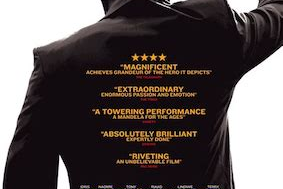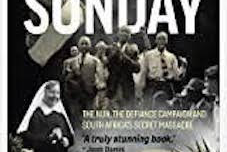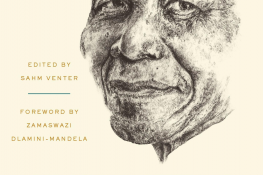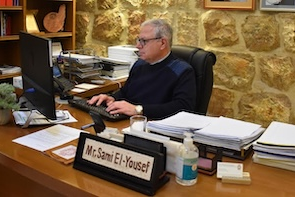Madiba, the man from Mvezo
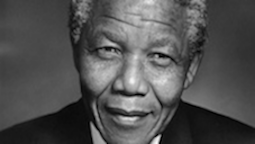
"This must be a world of democracy and respect for human rights, a world freed from the horrors of poverty, hunger, deprivation and ignorance, relieved of the threat and the scourge of civil wars and external aggression and unburdened of the great tragedy of millions forced to become refugees"(Nelson Rolihlahla Mandela's dream - Nobel peace prize address, 1993).
Saturday, 18 July, is Nelson Mandela International Day - a day when we remember "Mandela's values and his dedication to the service of humanity in: conflict resolution; race relations; promotion and protection of human rights; reconciliation; gender equality and the rights of children and other vulnerable groups; the fight against poverty; the promotion of social justice"; a day when we acknowledge "his contribution to the struggle for democracy internationally and the promotion of a culture of peace throughout the world (UN).
During my years of involvement as an activist in the UK, e.g. as co-chair of the UK's Anti-Racist Alliance (ARA), and co-president of the National Black Alliance (NBA), I joined others in the struggle against the evils of apartheid and campaigned for the release of Nelson Mandela and others. It was a humbling experience to meet him in Brixton, London in 1996 after his release in 1990. As I shook his hand I said to him: "You have shown them the strength of the man who came out of Mvezo!"
Mandela's Xhosa name was 'Madiba'. 102 years ago (18 July 1918) he was born into a royal family of the Xhosa-speaking Thembu tribe in the South African village of Mvezo, where his father was the Chief. He grew up in Qunu - from the age of two. This icon of social justice has left the world an amazing legacy. 27 years in prison on Robben Island, in Pollsmoor Prison and Victor Verster Prison did not break his spirit or his passion for justice. Fearlessly, on his release, he called on everyone to continue to "fight" for the release of his colleagues who were still imprisoned, and for the abolition of the apartheid system.
Read the life journey of this legend: an anti-apartheid activist, lawyer, political leader, political prisoner, philanthropist, global advocate for human rights, international peacemaker, and former President of South Africa, who is described as the 'Father of the Nation' in South Africa. He was "the country's first black head of state and the first elected in a fully representative democratic election. He served as President of South Africa from 1994 to 1999. He declined a second presidential term. Mandela became an elder statesman and focused on combating poverty and HIV/AIDS through the charitable Nelson Mandela Foundation (Wikipedia)."
As we approach our General Election on 10 August, reflect on the words in his speech before the second set of free elections in South Africa. They ring true for Trinidad & Tobago also. Inter alia, he said: "Even as we take pride in our progress, there are many needs still to be met. We must improve service delivery to the people. We must improve our attitudes towards citizens…we must work harder to root out crime and corruption, and to create jobs. ...we must build more houses to provide shelter to the homeless…we must make clean water accessible to more people…more houses must be connected with electricity and telephones…we must continue the work of building relations with the world…We will emerge strong and more united, true to our pledge that, whatever our political affiliation, we are one people with one destiny…the prize of a better life has yet to be won."
At the date of his death on 5 December, 2013 aged 95, he had received more than 250 honours, including the Nobel Peace Prize. Learn from his wise words: "No one is born hating another person because of the colour of his skin, or his background, or his religion. People must learn to hate, and if they can learn to hate, they can be taught to love, for love comes more naturally to the human heart than its opposite."
I end with an extract from the four-hour speech he delivered at his trial at the beginning of the defence case. He ended stating: "...I have cherished the ideal of a democratic and free society in which all persons live together in harmony and with equal opportunities. It is an ideal which I hope to live for and to achieve. But if needs be, it is an ideal for which I am prepared to die."
Leela Ramdeen is Chair of the Catholic Commission for Social Justice in the Archdiocese of Port of Spain, Trinidad & Tobago, (CCSJ) and Director of CREDI



